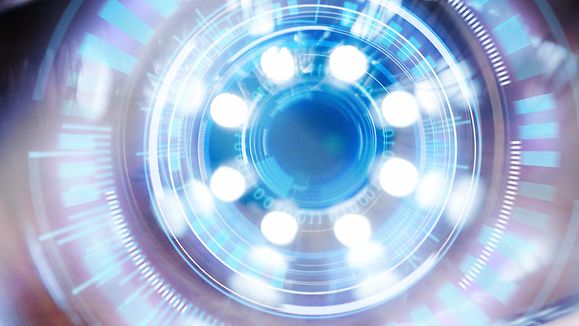Research and Development
R&D Round-Up
Our latest look at technological and scientific breakthroughs in Germany features everything from electricity and robots to quantum computing and particle acceleration.
Oct 27, 2023
String Inverters
The Fraunhofer Insitute for Solar Energy Systems (ISE) has developed the first medium-voltage string inverter for large-scale photovoltaic power plants. The central innovation is using silicon carbide semiconductors, which have a higher blocking voltage. The new system allows power plants to cut the amount of copper cable they require by some 70 percent.
Close Contacts
Materials scientist and professor at the University of Saarland Frank Mücklich has been awarded the Albert Keil Prize by the German Association for Electrical, Electronic & Information Technologies (VDE) for outstanding achievements in the field of electrical contacts. Mücklich led a team that developed a process to reduce electrical contact resistence in motor vehicles by 80 percent, thus increasing reliability.
Swiss Accolade
Swiss company Stäubli Robotics has given its annual Partner Award to Bavarian company Robo-Technology for its intuitive operated “Microbot” system. The Technology was co-developed by the Ferdinand Braun Institute at the Leibniz Institute for High-Frequency Technology. The system allows robots and human operators to work together in the production of complex hybrid micro-integrated photonic modules for use in quantum sensing and quantum computing.
Security Chip
The HEP research consortium has unveiled a new open-source, flexible design for a computer security chip. The hardware security model (HSM) consists of free components and was manufactured at the Leibniz Institute of High Performance Micro-Electronics. Security chips are essential for many electronic devices, from the smallest personal gadgets to automobiles.
Particle Acceleration
Scientists at the Friedrich Alexander University in Nuremberg-Erlangen have succeeded for the first time in using a nano device to accelerate electrons. The procedure involves using ultrashort laser pulses to illuminate nano-structures. One aim is to increase the energy and electron current gain to the extent that the particle accelerator on a computer chip is sufficient for medicine applications.
Source: https://www.research-in-germany.org/
